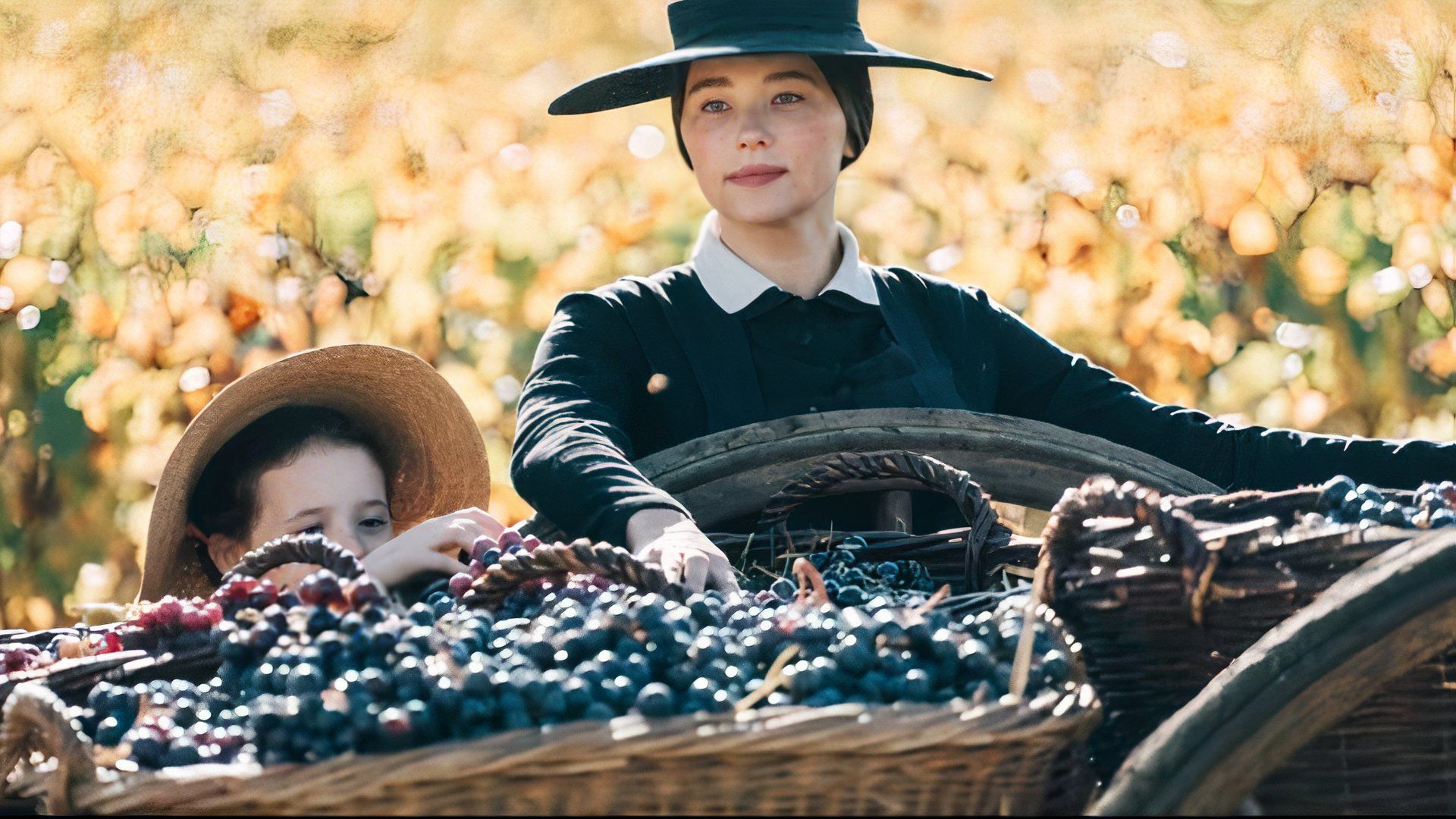Widow Clicquot tells the empowering true story of an indomitable woman who overcame grief, war, and an oppressive patriarchy to leave a legacy that continues today. She was underestimated and misjudged on a purely sexual basis despite being thoughtful and clever. Haley Bennett gives a nuanced performance over a layered narrative that unfolds too quickly in a relatively short, 90-minute runtime. Events from the first act are seen in a different light as harrowing truths are revealed. The film engrosses despite an excessive flashback structure.
The Widow Clicquot Saves Her Vineyard from Moët & Droit
3.5/5
The story behind the Veuve Clicquot champagne family and business that began in the late 18th century.
Release Date July 19, 2024
Director Thomas Napper
Runtime 1h 29m
Pros
- Haley Bennett gives a strong performance as an admirable woman in this inspiring movie.
- The film is an honest and affecting look at the treatment of women in the 19th Century.
- A treat for wine lovers everywhere.
Cons
- Widow Clicquot is much too short, and relies too heavily on flashbacks.
Expand
Barbe-Nicole Ponsardin Clicquot (Bennett) sighs as a maid bathes her for a solemn occasion. She tries to remain composed as her corset is tightly drawn. The body of her deceased husband, François (Tom Sturridge), lies in the adjacent room. She can’t bare to look as memories of their life overwhelm her. Barbe-Nicole clutches Clementine (Cecily Cleeve), her young daughter, as the funeral procession weaves through the family’s palatial vineyard in 1805 Champagne, France.
Clementine races back to the house in tears. Barbe-Nicole hurriedly follows but notices her father-in-law leading a group of men through the vineyards. Philippe Clicquot (Ben Miles) takes her aside for a shocking announcement. Jean-Remy Moët (Nick Farrell) has given him a fair offer for the estate. She should sell the company to avoid a life of poverty and destitution for her and Clementine. Moët, Droite (Paul Rhys), the vineyard’s overseer, and others circle her like vultures.
Barbe-Nicole adamantly refuses to sell. She will not give up on François’ dream. His cherished memory lives in the vines. Philippe and Droite question her state of mind, thinking that she’s obviously despondent and doesn’t understand what lies ahead. To them, a widowed woman couldn’t possibly have the intelligence and fortitude to run a vineyard on the verge of bankruptcy. Barbe-Nicole reminds them that François left her everything. It’s not their decision to make.
Haley Bennett Plays an Indomitable Woman
Widow Clicquot takes place during Napoleon Bonaparte’s attempted conquest of Russia. He also signed an 1804 decree disallowing female ownership of a business. Barbe-Nicole skirts these rules as a widow, but faces another formidable obstacle. Companies could not trade with countries who had chosen sides against France. She risked charges of treason if caught selling wine to François’ former European clients. Even worse, Edouard (Anson Boom), the vineyard’s bookkeeper, informs her that selling the latest vintage still wouldn’t be enough to pay their workers.
Screenwriter Erin Dignam (Denial, Loved) gives Barbe-Nicole no respite for mourning. She must act quickly or lose everything. But the film had to address Barbe-Nicole’s romance with François, him teaching her the subtleties of vinification, and the reasons for his early demise. Dignam achieves this through the near constant use of flashbacks. Barbe-Nicole gets triggered by sounds, objects, and interactions. She remembers François in those moments.
What begins as loving and gentle takes a surprisingly different turn in the second act. A seemingly ideal marriage was fraught with frightening incidents. Barbe-Nicole’s initial impressions of François didn’t show every side of a deeply troubled personality.
Related Drops of God Review: A Sublime and Soothing Apple TV+ Series
The new Apple TV+ miniseries Drops of God is a calming but complex tale of competition, culture, family history, and lots of wine.
The Oppressive Patriarchy
Widow Clicquot illuminates the ingrained societal misogyny that had little respect for women’s rights. Barbe-Nicole has to constantly prove herself to everyone around her. We see her toiling in the fields with the workers as they care for the vines. This act in itself appalled both the bourgeoisie and noble classes alike. How dare a lady put her hands in filth to sow the land like peasants. She aroused further ire by constantly pushing boundaries, but having gumption doesn’t mean you’re an expert. Barbe-Nicole sadly learns that she’s inexperienced and doesn’t have all the answers, giving way to some humility and interesting supporting characters.
3:53
Related Eva Longoria & Santiago Cabrera Talk Wine, Women, and New Apple TV+ Series
Eva Longoria’s new Apple TV+ dramedy Land of Women follows a family on the run who end up at a Spanish vineyard.
Widow Clicquot dances around difficult topics until all pretenses are dropped in a brief third act. Clues sprinkled like crumbs in the flashback scenes are answered with varying levels of devastation. Barbe-Nicole refused to be weak in daunting circumstances. She had to protect herself and Clementine. Tears were a sign of female fragility, so she suffered in solitude. Bennett is remarkable for giving light to an emotional struggle that couldn’t be publicly expressed.
Widow Clicquot should have been much longer. Filmmaker Thomas Napper (Jawbone), known as Joe Wright’s long-time assistant director, was too liberal in the cutting room. The film would have been more engrossing with less back and forth. He does a good job here but leaves dramatic meat on the bone. It could easily have been two hours. Everyone who enjoys champagne should lift a glass to Widow Clicquot. She transformed an entire industry through pure nerve and skill.
Widow Clicquot is a production of Fourth and Twenty Eight Films and WME Independent. It is currently in limited theatrical release from Vertical.
You can view the original article HERE.






























